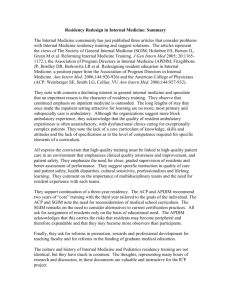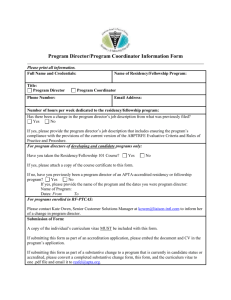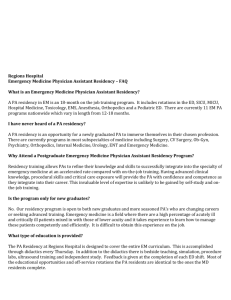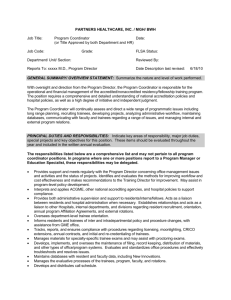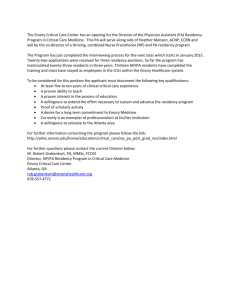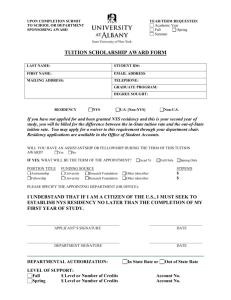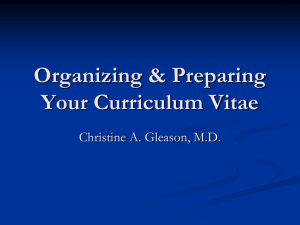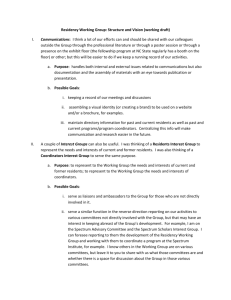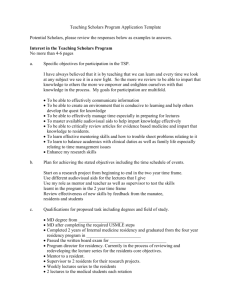Chief Residency Skill Sets
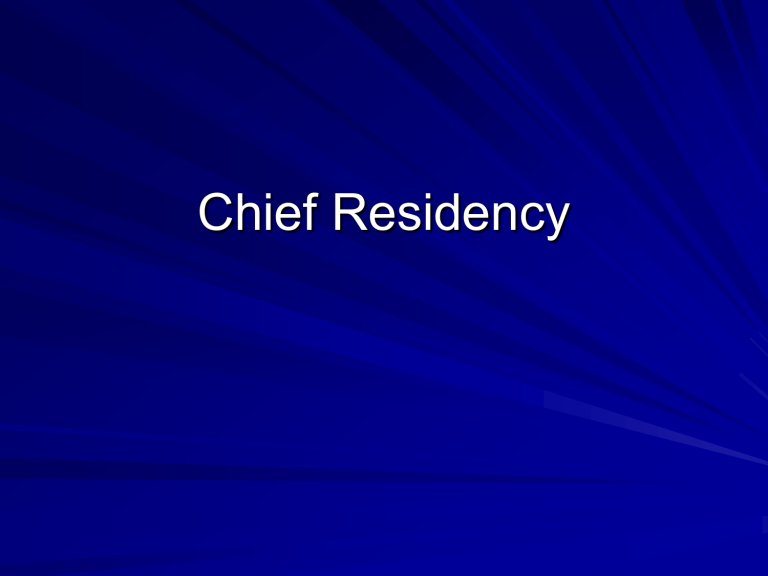
Chief Residency
History of Chief Residency
Some trace origins to Dr. Halstead’s surgery program at Johns Hopkins in 1889
Others point to the “house physician” position at New York Hospital in 1791 as the origin
Quotes About Chief Residency
“a considerable benefit for programs and program directors”
“Chief Residents provide a unique bridge between residents and faculty.”
“a time of unparalleled personal and professional growth”
“Chief Residency is an exciting educational challenge.”
“Chief Residency develops the leadership skills for our future medical leaders.”
“Chief Residency can really
SUCK!”
Ben Clyburn in 1992
Are you a resident or a faculty member?
Loyalties are split. It can be a lonely job.
There is rarely a job description.
There is often a heavy administrative load.
Limited training as a teacher, administrator and manager.
The one constant is change.
The Five Dimensions of Chief
Residency
Leadership
Teaching and evaluation
Clinical practice
Administration
Research/Personal growth
Adapted from A Primer on Chief Residency in the 7 th edition of the APDIM
Program Manual
Tips For Success
#1 Have Goals
Decide what you want to achieve on a personal level.
Pick something you want to improve in your program.
Understand the existing mission/goals of your program.
Tips For Success
#2 Understand Your Job
Description
If you don’t have one, write one. Exiting
Chiefs and Program Directors are great resources.
Recognize your strengths and weaknesses and adjust accordingly. If there is more than one Chief, take advantage of each person’s skills.
Tips For Success
#3 Get Oriented
Sit down with the current Chief Residents before they leave if possible.
Ask your Program Director for any expectations or any anticipated changes.
Talk to your real boss, the Program
Administrator.
Tips For Success
#4 Plan Ahead/Organize
Plan for unanticipated absences. Set up
Jeopardy/Surge schedules.
Recognize that any schedule you make is temporary.
Post a calendar with monthly duties.
Document any disciplinary, remediation or counseling sessions. You may need a paper trail .
Tips For Success
#5 Utilize Available
Resources/Delegate
Let your residents help you with the schedule.
Recognize when to defer to your Program
Director.
Develop a close friendship with your
Program Administrator.
Let technology help.
Tips For Success
#6 COMMUNICATE!
Share your expectations with your residents.
Address concerns quickly and confidentially.
Listen.
If you are unhappy, share this with your
Program Director or Chairman.
